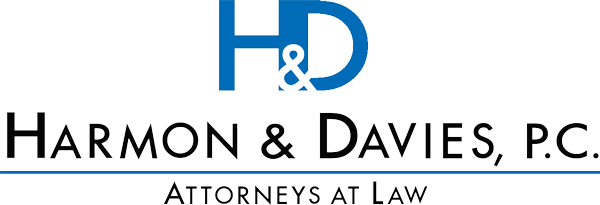
Counsel You Can Count On In Employment & Labor Law And Construction Law
Our attorneys assist businesses across the United States in proactively reducing their exposure to employment litigation and construction claims through effective legal counsel.

Building Partnerships To Deliver Legal Services
At Harmon & Davies, P.C., our lawyers aim to build continuing relationships with our clients that allow us to understand and provide for their ongoing legal needs.
Employment & Labor Law
Employers must safeguard themselves through preventive actions and updated practices. Our attorneys partner with businesses to develop best practices and draft employment policies and agreements that aim to reduce the likelihood of litigation. We offer counsel on discrimination and harassment concerns, wage and hour issues, FMLA, trade secret protection, union organizing and other relevant topics. Our attorneys can guide you in difficult compliance situations and offer legal advice to resolve human resources issues productively.
Construction Law
For our construction clients, we emphasize preparation to protect them from common claims. Our clients benefit from our lawyers’ experience which builds trust and efficiency into our attorney-client relationships. We can provide legal support throughout your project, including the negotiation of financing, drafting and interpreting contract terms, securing necessary certifications, or filing mechanic’s liens.
Employment & Labor Law
Providing counsel in employment disputes.
More »
Construction Law
More »
Effective Litigation Of Employment Claims And Construction Disputes
Our lawyers’ primary goal is to prevent litigation; however, in some cases, going to court is unavoidable. Our attorneys have decades of litigation experience and zealously defend our clients efficiently and effectively.
Whether an employee raised claims or you are in the midst of a construction dispute and litigation is the only option, our lawyers can help. By working with us on an ongoing basis and adopting our recommendations, you will be well positioned to defend claims.

Counsel You Can Count On Nationwide To Prevent And Resolve Employment & Labor Claims And Construction Disputes
Meet Our Team
Our attorneys have over 100 combined years of experience in employment, labor, and construction areas of practice.
Harry R. Harmon
Thomas R. Davies
Laura Bailey Gallagher
Kimberly J. Overbaugh
John E. Smucker II
Learn How Our Attorneys Can Serve You
Ready to take the next step in protecting your business? Reach out to our Lancaster office to schedule an appointment with an attorney to discuss how we can help you. Call 717-291-2236 or send us a message through our website.


